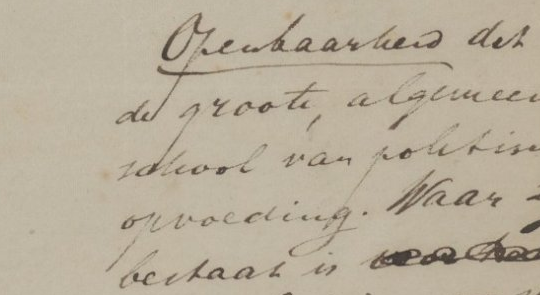A revised version of the Bill on Open Government (Wet open overheid in Dutch) has been published by the initiators of GreenLeft and Democrats 66. The revised bill can be found on the website of the Dutch House of Representatives. This bill should replace the current Dutch Freedom of Information Act from 1980. Tom Kunzler, interim CEO of Open State Foundation: ‘This revised Bill on Open Government has been adjusted at some points, but remains an important step for transparent Dutch government that has a grip on its own information. However, we would like to see a workable alternative for the information register that has been removed in this revision and we want guarantees that the information that will be published thanks to this bill is actually re-usable.’
The bill is an initiative from two parties of the Dutch House of Representatives. The original bill was accepted by the House in 2016. But after a quick scan the bill was deemed too expensive to implement. The bill forced Dutch governments to actively publish more information within a given time-frame, installed an information commissioner and mandated government to make an information register. The current cabinet and representatives from local governments have worked on a compromise for almost two years and the result has now been published.
The revision mandates that governments should actively publish certain categories of information, every government will have a point of contact for transparency, a committee will review how the bill will be implemented and the government formulated a plan to improve its own information managment. Kunzler: ‘ The revised bill is an important step for transparency and everyone who uses government information like journalists, companies, NGO’s, citizens and governments. It will improve accountability, participation and the creation of new innovative apps. We hope an alternative can be found for a less detailed information register based on existing lists, that civil society and media organizations will be represented in the committee and that guarantees will be made about machine-readable and centralised publication of the data.’
This article is a summary of the Dutch version.
